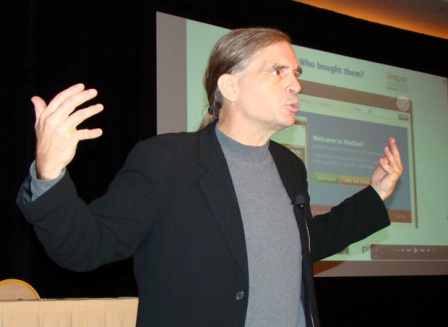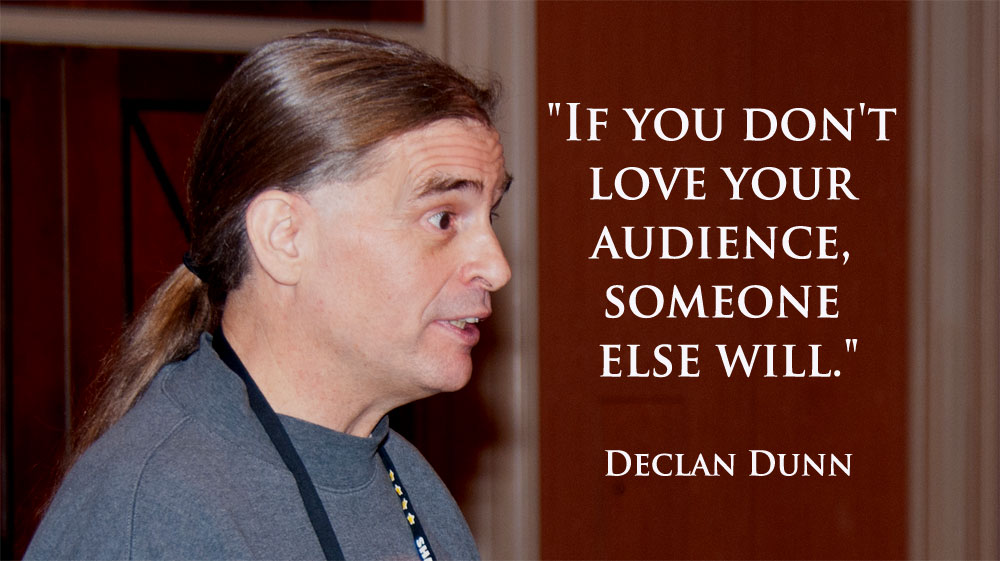Interview With Declan Dunn: A Pioneer of Internet Marketing
This time I have been very lucky to get in touch with Declan Dunn, one of the pioneers of Internet Marketing. Some of his answers are incredible and deeply insightful.
So, I would suggest – close all other tabs and dig this for a while. It will be worth your time!

1. Please tell us something about yourself.
I am an entrepreneur for over 27 years, helping businesses, large and small, build their customer base, grow revenue, and position themselves for either a long term business, IPO, or acquisition. I’ve been an integral part of 10 companies going IPO or getting acquired, while helping many more than that simply build a great business.
Everything I do begins and ends with the customer – helping them identify and solve their problems while building a business that they love to be a part of, because becoming a customer means being an essential part of your business.
Now I build companies for growth, both as a coach and a direct participant in several companies, including FMGNetwork.com and Cydec. At the core of what I do is a move from marketing and business development as selling, to one of serving people.
My greatest success is an educational site I began in 1995 which has educated over 50 million students worldwide, and makes no money yet shares tons of love.
It’s what you leave behind, not what you do or who you are, that matters. And every action gives us a chance to improve other people’s lives.
2. You are one of the pioneers of Internet marketing, starting as early as 1994. How did you foresee the immense potential of this field then?
Picture a world where everyone is disconnected, where phones have answering machines and building a business is insanely expensive. That’s what it was like in 1994 when I was developing my educational project – part of a Master’s Program that I created to build a CD-ROM. Then, in 1994, I saw Marc Andreesen of Netscape share the world’s first browser.
Seeing that, I knew that I could reach thousands if not millions of people first, and began putting everything I knew into it. Those early days we all knew the power of the Internet, we just didn’t know how and how quickly it would grow. How I saw this potential was simple; it was much, much easier than anything before it, and everyone was going to have some form of computer.
Also the Internet was one of the first things I really intuitively understood; the real world of retail and physical business I struggled with, yet the digital world was just in my blood. I’ve been able to keep 2-3 years ahead of the market simply because I watch what people do, not what I think.
When you watch human behavior and not just your opinion, you can witness amazing things. Get yourself out of the way and miracles can happen. Those early days of the Internet you had tons of visionaries, dreamers, and brilliant people coming together to make the world a better place.
The Internet (which seems so old fashioned to say, I call it the digital world now) is a way to connect people, not separate them, and I took this to heart by building my educational site on partnerships, moving from CD-ROM to a web site. Once I reached my first million visitors in 1997, I applied these same community building principles to a growing marketing field called affiliate programs, and applied the same methodology to big companies like American Express that I did to my little educational site, and I continue that to this day.
3. You have come to be known as the expert’s expert. How did you build this reputation?
Results, plain and simple. Most experts have a huge pitch with a small delivery. I’m always one to under promise and over deliver, because I love helping people. In fact, one of the ways I built my reputation is by creating my own manifesto, with help of the E-Myth, which guides me to this day:
“Help others help themselves, always. Learn, teach, and be amazed.”
My reputation grew because I shared it in multiple markets; affiliate marketing, Internet marketing, and online education. I got to help companies like PBS and ABC, and also helped small businesses grow into larger ones. And along the way, a bunch of new people were coming online. That’s where I got to know many of the leading experts today; teaching them and learning from them as they got into this space.
The best way I built my reputation is by delivering results and helping people with a down to earth, me to you approach delivered in plain, simple English and not hype. I ran one of the largest marketing agencies for 5 years, with 25 employees as well, of which 12 still run their own businesses (I left in 2004). And they are still friends, many of whom I still work with on projects.
You build your reputation by caring about people. Both-the businesses and experts I help, and their customers, I care for. And if I make mistakes, I love it and admit it, and don’t do the blame game or dance. Mostly I help people understand that anyone, seriously anyone, can come up with the next biggest idea, and you don’t need a guru to find it.
You are the guru, you are the answer, and while you can learn from others, I became the expert’s expert because I’m a Guide on the Side – NOT a sage on the stage claiming to be perfect. The only way to succeed is to find your own unique way, which is something I continue to do with the people I help.
4. You say “If you don’t love your audience, someone else will”. What do you think is the best way to prove to your audience that you love them?
Listen to them and deliver what you promise. How do you prove love in a relationship? You care, listen, adapt and grow, make mistakes and own those mistakes instead of making excuses. You begin by focusing on “how can I serve my audience and help them solve their problems, not how much can I sell or how much money I can make”. That’s simply a result of loving your audience.
The best way to prove your love to your audience is – helping them first identify their problem. Most people don’t really know they have a problem, or they would be solving it. And focusing them on actionable solutions. Finally, always approach your business with a smile and love.
Love yourself, you can love your customer; you prove your love by being there, being loyal, and being accountable. And always listening to learn from the audience, because they are the ones with the answers, not you!
5. You have worked with the best of small businesses and large corporations. How similar do you think they are? And what sets them apart?
All businesses have one thing in common; they must be profitable. What sets them apart is the size of the business, the budget, and the number of people helping them. For example, small businesses usually have limited resources, fewer people, and are trying to become big. They’ll be more flexible, take chances, and by their lack of resources they are usually much more inventive and here’s a buzzword – innovative – because they have to be or they won’t succeed.
Bigger companies move slower and while they like to be inventive, they are limited by the impact that could have on their growth. For example, when I put American Express’ affiliate program online for the first time, I learned that one complaint in an email could reach the New York Times and have a negative impact much, much greater than the value of the affiliate program. That happens with brands and big businesses.
Big businesses teach me how to plan, execute, and look at growth over longer periods, while small businesses which I love and always help have that passion, energy, and belief that is usually sucked out when a company gets big.
Today I try to teach big businesses to be more lean and agile, entrepreneurial within a corporate context, and I also help small businesses with the discipline and focus that large companies bring. By blending the two, you find that what they have in common is the ultimate goal; get their customers to love them and become repeat customers, while making the business fun for those employees or entrepreneurs building the business.
Continue to Page 2 for the rest of the interview …
